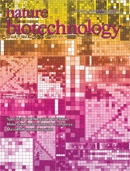 A fleet of cars and drivers whisks visiting journalists around the Frankfurt Motor Show’s sprawling, 144-hectare site. Judging by the number of exhibits of self-driving car technology this year, future visitors can expect their courtesy cars to lack drivers. It’s a matter of putting together many existing technologies in an affordable, safe system.
A fleet of cars and drivers whisks visiting journalists around the Frankfurt Motor Show’s sprawling, 144-hectare site. Judging by the number of exhibits of self-driving car technology this year, future visitors can expect their courtesy cars to lack drivers. It’s a matter of putting together many existing technologies in an affordable, safe system.
One piece of that future system nearly clobbered a two-dimensional cutout of a child last week on a fenced-off piece of asphalt outside Hall 10. There, Bosch employees led by Werner Uhler were demonstrating a stereo optical camera system Uhler says could be cheaper than combined radar and optical systems used for collision avoidance today. The device is mounted on the front window of a testbed car, adjacent to the rear-view mirror. As the testbed approached a parked car, Uhler, seated in the backseat, said, “We will drive along…and suddenly a child will turn up and we will brake.”
Read the rest of this post at IEEE Spectrum’s Tech Talk blog: [html] [pdf]



